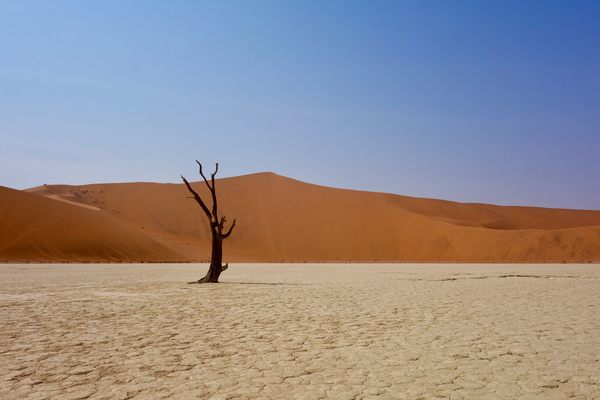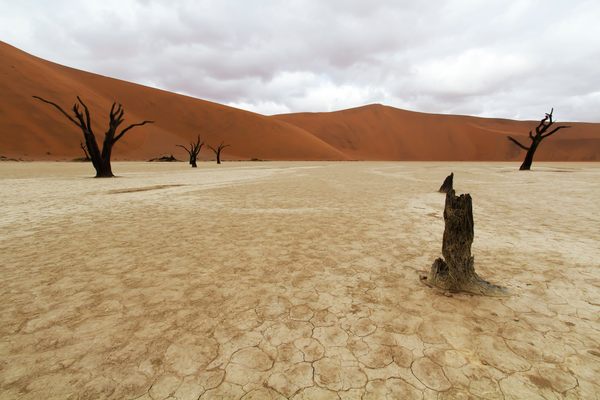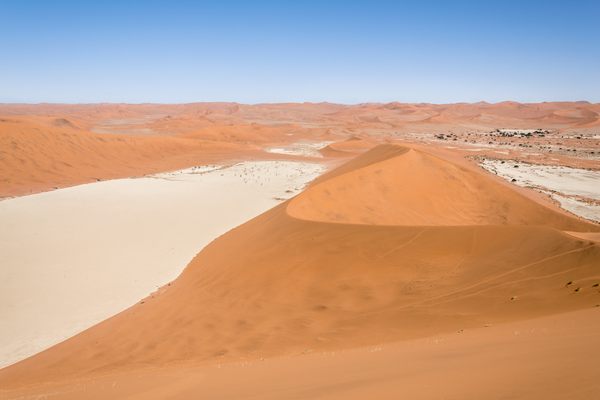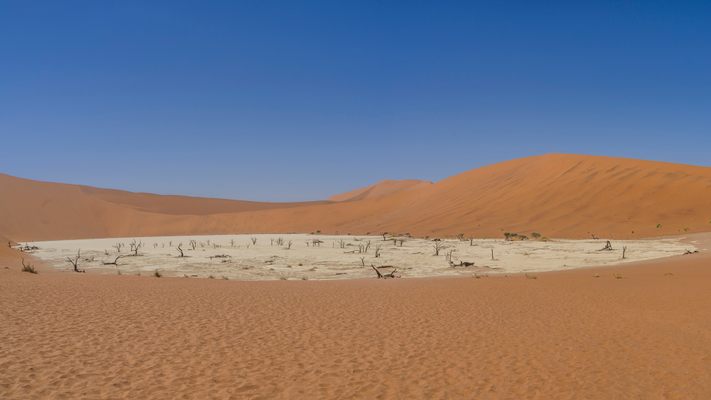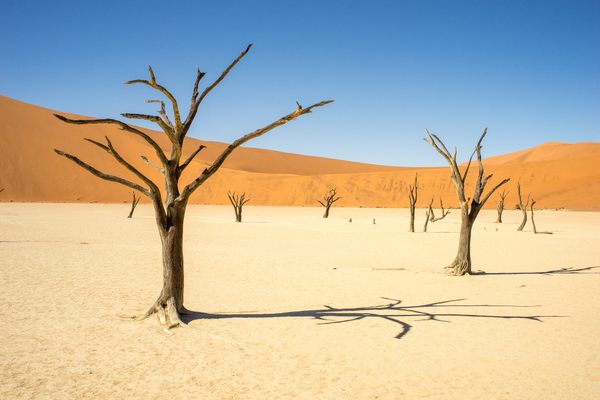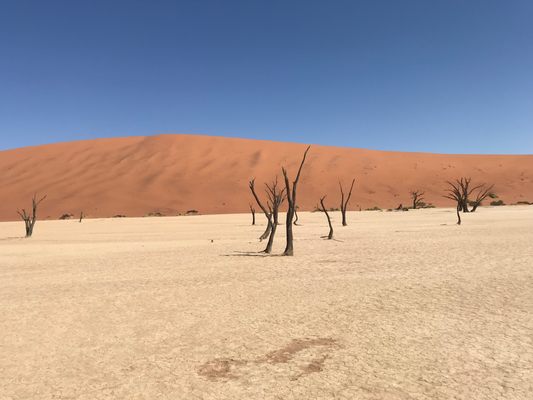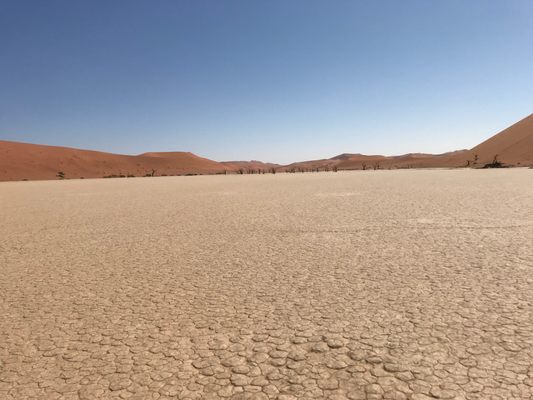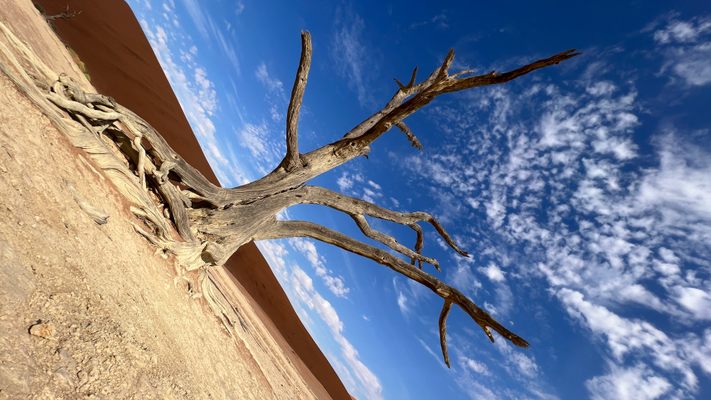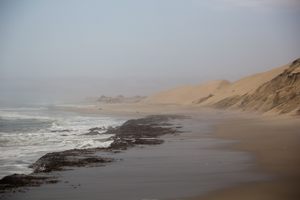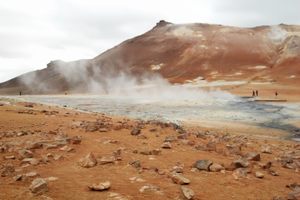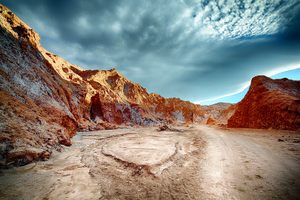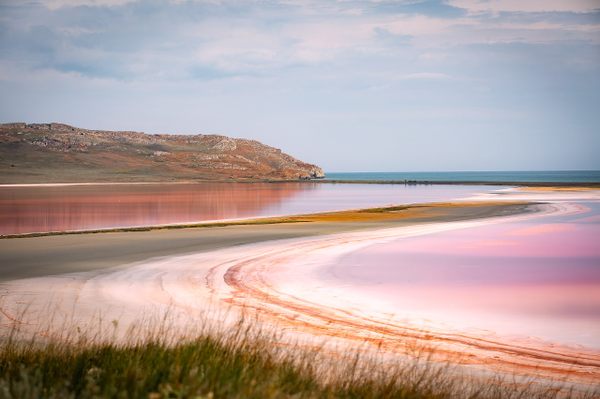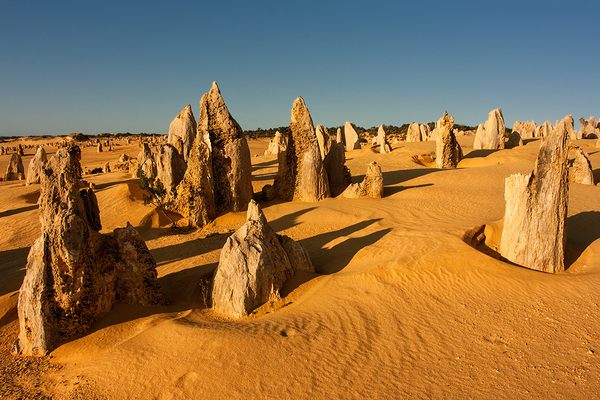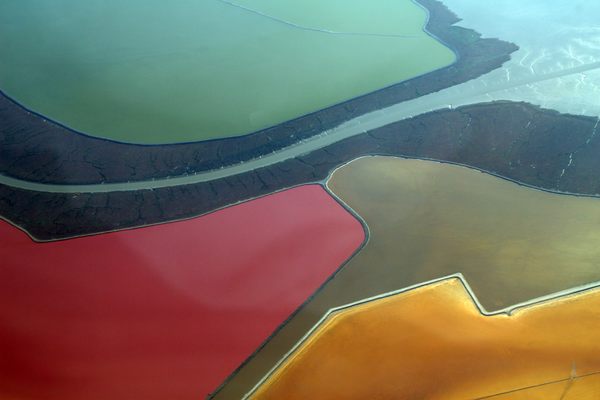About
Among the towering red dunes of Namib-Naukluft National Park in the central Namib Desert is an area known as Sossusvlei. It is a strange and alien landscape. The rich red dunes that surround the area owe their hue to age—over the thousands of years, the sand has literally rusted.
Sossusvlei is a wide, flat, salt-covered expanse with a dense and compact layer of clay in the subsoil. When dry, Sossusvlei is hard and arid, and when wet, as it gets every 5-10 years when fed by the Tsauchab River, it becomes sticky and plastic. The area is the river's final destination. Even in the wettest of years, the water soaks into the salt/clay pan, giving the area its nickname: "place of no return." Altogether the blue sky, red dunes, and white pans make a striking vision, reminiscent of movies such as The Fall, The Cell, and Steel Dawn.
Nearby is yet another "place of no return" this one even older, and much more dead than Sossusvlei. Known as Dead Vlei or "dead marsh" (vlei being Afrikaans for a type of marsh), it is found among the tallest dunes in the world—some reach 1,312 feet high, which is almost as lofty as the Empire State Building. Dead Vlei was once like Sossusvlei, with the river draining into it nourishing desert life and even trees. But no longer. Some 900 years ago the climate dried up, and dunes cut off Dead Vlei from the river.
It became too dry in Dead Vlei for the trees to even decompose. They simply scorched black in the sun, monuments to their own destruction. The trees, now over 1000 years old, form a barren forest. The area, however, is not entirely without life. Salsola shrubs and clumps of Nara melon stay alive by subsisting off of morning mists.
It is a 44-mile drive from the park gates to the dunes of Sossusvlei and Dead Vlei. One of the many reasons to go is to experience the sunrise (or sunset) over the huge red sand dunes of the Namib desert. The skies are among the clearest on the planet.
Related Tags
Know Before You Go
Drive to Namib-Nauklaft Sossusvlei is the better part of a day's drive from Windhoek. There are some rather difficult mountain passes on some secondary roads, so you'll have to choose your route wisely if you don't bring a high-clearance vehicle (there are several routes from Windhoek). The best route without nasty mountain passes would be from the south-central town of Mariental. On the other hand, the passes provide excellent viewpoints. The road from the accommodations in Sesriem to Sossusvlei itself is tarred almost all the way, although this was the worst tarred sealed road in Namibia. The road is now well maintained and in good condition. On the last 5 km you have to drive through sand, so you will need an all-wheel vehicle
Community Contributors
Added By
Published
June 6, 2012

